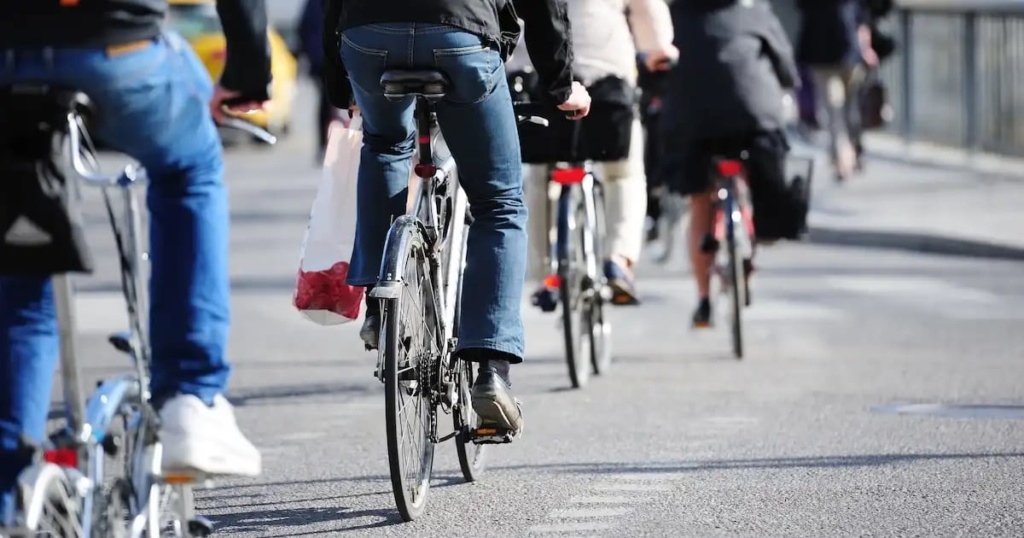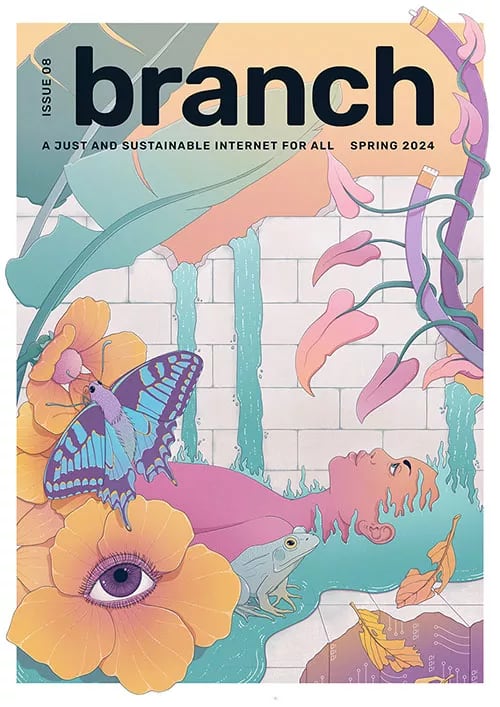|
Crawling websites for good and ill
|
Welcome to issue 63 of Curiously Green.
So much of my digital sustainability beat feels like it revolves around “big” data, “big” AI and big tech. The impact they have on our daily real and digital lives is inarguable and dominates most of the feeds I read. Finding a mix of content on sustainability and accessibility for the newsletter can be a real challenge in some months. It’s always exciting to find interesting writing on topics in the area that aren’t about AI and I’ve been very pleased to find some really insightful articles to share this month.
On the non-AI side there’s writing about the state of Web Accessibility from WebAim, some interesting analysis on the carbon intensity of domain registries and some digital sustainability reporting on the websites from different economic industries.
Of course there is no escaping AI news these days. On this topic there’s news about Meta training their AI models on pirated books (including Sustainable Web Design by our own Tom Greenwood), how AI crawlers are causing huge issues for open source websites and how young people would like AI to evolve for future generations.
Am I getting the balance right? Only you can tell me. Drop me an email to [email protected] to let me know what you’d like to see more of in future editions.
In the meantime I’ll keep looking for interesting things to share, AI related or otherwise.
Andy
|
|
|
Curious picks from the green web
|

The WebAIM Million report 2025
|
Let’s start with an organisation that’s central to improving the web for actual humans.
For the seventh consecutive year, WebAIM have conducted an accessibility evaluation of the home pages for the top 1,000,000 web sites.
There are some great insights and some positive news to be found. The number of detectable accessibility errors are slightly down on 2024, which is great news!
Less great is that home pages are getting larger and more complex exacerbating both accessibility and sustainability issues.
The number one error found is low contrast text which is frustrating but also easily corrected. If you do one thing as a result of reading this newsletter, please check your homepage on the WebAIM Wave tool and take some action!
|
|

The carbon footprint of domain registries
|
Go.Eco is a BCorp certified domain registry who embrace the digital sustainability movement. This exploration of the carbon intensity of 5 top level domain registries is really insightful.
I’m a big fan of organisations displaying “radical transparency” when it comes to sustainability. This report isn’t Go.Eco shouting about how brilliant they are (although they could) it’s more about telling the world where they are in their sustainability journey and how to benchmark it against others.
The work that Owen and the .eco team do is to be commended. You can read more about them and the community on their news page.
|
|

Pirated books used to train Meta's Llama 3 model
|
As alluded to in the introduction, some of the biggest news in the tech space this month came from the Atlantic’s investigation into how Meta trained its genAI model Llama 3.
The crux of the story comes down to Meta finding paying for access to literature and research papers to be too expensive (Meta’s gross profits in the 12 months to December 2024 – $134 billion), they took the difficult decision to use a library of pirated books and literature.
The blatant disregard for copyright and creativity here is quite chilling. Like so many decisions taken by big tech firms recently it feels like an action taken because they could weather the consequences.
Moving fast and breaking things remains the modus operandi in Silicon Valley. It remains to be seen if Meta will face any adverse effects from their decision to use the LibGen library.
(Account or Free Trial required)
|
|
|
|
|
Please stop externalizing your costs directly into my face
|
|
|
|
|
Open Call for contributions to Branch Magazine issue #9
|

|
The Green Web Foundation are looking for contributors for July’s issue of Branch Magazine. Articles and stories on the theme of Attunement: Designing in an Era of Constraint.
Inspired by recent work and developments in Grid-Aware web technology, Issue 9 asks for submissions including content types, such as: text, code, mixed media, comics, recipes, interface designs, audio, video or games to explore the theme.
If you have ideas about how to rebuild the internet to respond better to the constraints of the energy grid or how to reimagine digital infrastructures to be more attuned to life systems, check out the submissions page and get involved.
|
|
|
|
|
News from the Curiously Green community and beyond
|
|
|
|
We want to hear from you!
|
|
Submit ideas, news and links for the next issue
|
Don’t forget, we want to hear more from you, the Curiously Green community! If you’re heard or read something that may be of interest, please share any links, and your thoughts with us.
Even better, we’d love to know what you’re working on. If you have any case studies or projects you’d like to share, or new approaches you’ve tried that may be of interest, this is a great way to share with like minded folk so please head over to our submission form and tell us all about it!
|
|
|
|
|
This issue of Curiously Green is curated and written by Andy Davies with suggestions and input from Tom Greenwood, Bailey Bryan and readers Beate and Lucy
|
|
|
|